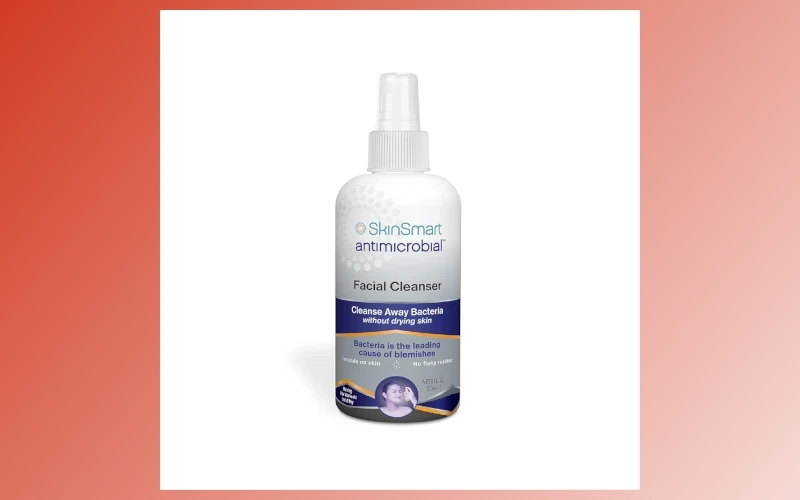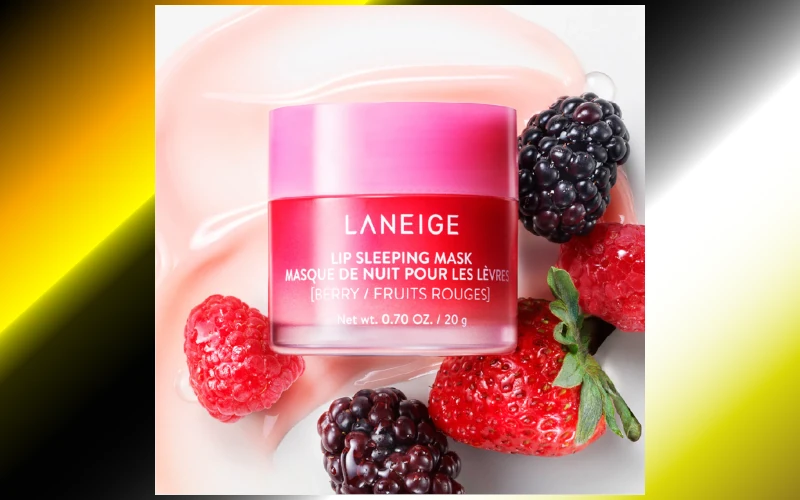Loss of Skin Elasticity: Understanding and Reversing the Signs of Aging

The quest for youthful, radiant skin is a timeless pursuit. One of the most noticeable changes that accompany aging is the loss of skin elasticity. This gradual decline in the skin’s ability to stretch and snap back into place leads to many concerns. Such as cosmetic concerns, including wrinkles, sagging, and a loss of overall firmness.
But the good news is that understanding the underlying causes of this decline and embracing proactive measures can help you combat the effects of time and maintain a more youthful appearance.
In this comprehensive guide, we’ll get into the science behind skin elasticity, explore the various factors that contribute to its decline, and unveil effective strategies to improve and preserve it.
From lifestyle modifications to skincare routines and professional treatments, we’ll equip you with the knowledge and tools needed to take charge of your skin’s health and age gracefully.
- What is Skin Elasticity and Why is it Important?
- The importance of skin elasticity cannot be overstated:
- The Culprits Behind the Loss of Skin Elasticity
- Reversing the Signs of Aging: Strategies to Improve Skin Elasticity
- Conclusion
- Frequently Asked Questions (FAQs): Your Path to Maintaining Skin Elasticity
What is Skin Elasticity and Why is it Important?
Skin elasticity refers to the skin’s ability to stretch and return to its original shape after being deformed. It’s akin to a rubber band snapping back into place after being stretched. This remarkable property is attributed to a complex network of proteins within the skin, primarily collagen and elastin.
- Collagen: Collagen is the most abundant protein in the human body, providing structural support and strength to various tissues, including the skin. Think of it as the scaffolding that holds your skin together.
- Elastin: Elastin is another essential protein that gives the skin its elasticity and resilience. It allows the skin to stretch and bounce back, much like a spring.
The importance of skin elasticity cannot be overstated:
- Youthful Appearance: Elastic skin is plump, smooth, and wrinkle-free, contributing to a more youthful appearance.
- Resilience: Elastic skin is better equipped to withstand environmental stressors and resist damage.
- Wound Healing: Elasticity plays a crucial role in the skin’s ability to heal efficiently after injury.
The Culprits Behind the Loss of Skin Elasticity

Several factors contribute to the gradual decline in skin elasticity:
| Cause | Description |
|---|---|
| Intrinsic Aging | As we age, our bodies naturally produce less collagen and elastin. This decline begins in our 20s and accelerates with time, leading to thinner, less resilient skin. |
| Sun Exposure | Ultraviolet (UV) radiation from the sun is a major culprit behind premature aging. It damages collagen and elastin fibers, leading to wrinkles, sagging, and a loss of elasticity. |
| Environmental Pollutants | Exposure to environmental pollutants like smoke, smog, and free radicals can accelerate the breakdown of collagen and elastin, contributing to premature aging. |
| Smoking | Smoking constricts blood vessels, reducing blood flow to the skin and depriving it of essential nutrients and oxygen. It also damages collagen and elastin, leading to wrinkles and sagging. |
| Poor Diet | A diet lacking in essential nutrients can compromise skin health and elasticity. Sugar, in particular, can damage collagen through a process called glycation. |
| Dehydration | Dehydrated skin is less plump and supple, making it more prone to wrinkles and fine lines. Maintaining adequate hydration is crucial for preserving skin elasticity. |
| Lack of Sleep | Sleep deprivation can disrupt the skin’s natural repair processes, leading to a dull complexion and decreased elasticity. |
| Stress | Chronic stress can accelerate aging and contribute to a loss of skin elasticity by triggering the release of cortisol, a hormone that breaks down collagen. |
Reversing the Signs of Aging: Strategies to Improve Skin Elasticity
While the aging process is inevitable, you can take proactive steps to slow down its effects and improve your skin’s elasticity.

Lifestyle Modifications
- Sun Protection: Shielding your skin from the sun’s harmful rays is paramount. Wear sunscreen with a broad spectrum SPF of at least 30 every day, even on cloudy days. Seek shade during peak sun hours and wear protective clothing like hats and sunglasses.
- Healthy Diet: Nourish your skin from the inside out by consuming a diet rich in fruits, vegetables, whole grains, and lean protein. These foods provide essential vitamins, minerals, and antioxidants that support collagen production and protect against free radical damage.
- Hydration: Drink plenty of water throughout the day to keep your skin hydrated and plump. Aim for at least eight glasses of water daily.
- Stress Management: Find healthy ways to manage stress, such as yoga, meditation, exercise, or spending time in nature.
- Adequate Sleep0: Aim for 7-8 hours of quality sleep each night to allow your body to repair and regenerate, including your skin.
- Quit Smoking: If you smoke, quitting is one of the best things you can do for your skin’s health and elasticity.
Skincare Routine
- Gentle Cleansing: Use a gentle cleanser that won’t strip your skin of its natural oils. Avoid harsh soaps and cleansers that can disrupt the skin barrier and lead to dryness.
- Exfoliation: Regular exfoliation helps remove dead skin cells, revealing a brighter complexion and allowing skincare products to penetrate more effectively. Choose a gentle exfoliator suitable for your skin type and use it 1-2 times a week.
- Moisturizing: Moisturizers help lock in moisture and keep your skin hydrated, which is essential for maintaining elasticity. Look for moisturizers that contain humectants like hyaluronic acid or glycerin, as well as emollients and occlusives to seal in moisture.
- Antioxidants: Topical antioxidants like vitamin C, vitamin E, and green tea extract help neutralize free radicals, protecting collagen and elastin from damage.
- Retinoids: Retinoids, derived from vitamin A, are potent anti-aging ingredients that increase cell turnover, stimulate collagen production, and improve skin texture and elasticity. Start with a low concentration and gradually increase as tolerated.
- Peptides: Peptides are short chains of amino acids that can signal the skin to produce more collagen, helping to improve firmness and elasticity.
Professional Treatments
If you’re looking for more dramatic results, consider these professional treatments:
- Laser Resurfacing: Laser treatments can stimulate collagen production, tighten the skin, and reduce the appearance of wrinkles and fine lines.
- Microneedling: This minimally invasive procedure creates tiny punctures in the skin, triggering the skin’s natural healing process and promoting collagen and elastin production.
- Radiofrequency Treatments: Radiofrequency energy heats the deeper layers of the skin, stimulating collagen production and tightening the skin.
- Dermal Fillers: Injectable fillers can temporarily restore volume and plumpness to areas where collagen and elastin have been lost.
Choosing the Right Products
When selecting skincare products to improve skin elasticity, look for those containing ingredients like:
- Retinol: A potent form of vitamin A that increases cell turnover and stimulates collagen production.
- Hyaluronic Acid: A humectant that attracts and holds moisture, plumping and hydrating the skin.
- Vitamin C: A powerful antioxidant that protects against free radical damage and promotes collagen synthesis.
- Peptides: Short chains of amino acids that can signal the skin to produce more collagen.
- Ceramides: Lipids that help strengthen the skin barrier and prevent moisture loss.
Remember, consistency is key when it comes to skincare. Choose products that are suitable for your skin type and use them regularly as directed.
Collgen Boosting Foods for Skin Elasticity
To boost skin elasticity, eat foods rich in Vitamin C (citrus, berries, bell peppers, leafy greens), zinc (nuts, seeds, shellfish), and amino acids (bone broth, fish, eggs, beans) to support your body’s natural collagen production, alongside antioxidants and healthy fats from avocado and nuts that protect existing collagen and keep skin hydrated and firm.
Foods That Provide Collagen & Amino Acids:
- Bone Broth: A direct source of collagen and its building blocks.
- Fish & Chicken: Excellent protein sources providing essential amino acids for collagen synthesis.
- Egg Whites: Contain significant amounts of collagen.
- Legumes & Soy: Provide amino acids and isoflavones (in soy) that support collagen.
Foods That Stimulate Collagen Production (Rich in Vitamin C, Zinc, Antioxidants):
- Fruits: Citrus fruits (oranges, lemons), berries (strawberries, blueberries), kiwi, pineapple, guava.
- Vegetables: Bell peppers (especially red), leafy greens (spinach, kale, Swiss chard), tomatoes, carrots, garlic.
- Nuts & Seeds: Almonds, cashews, pumpkin seeds, flaxseeds, chia seeds (provide zinc, copper, healthy fats).
- Oysters & Shellfish: High in zinc and copper, vital for collagen formation and repair.
- Avocados: Contain Vitamin E and healthy fats that protect skin cells.
Key Nutrients for Elasticity:
- Vitamin C: Essential for collagen synthesis (found in citrus, berries, greens).
- Zinc & Copper: Minerals crucial for collagen structure (nuts, seeds, shellfish).
- Antioxidants: Protect collagen from damage (berries, leafy greens, colorful vegetables).
By incorporating these foods, you provide your body with the necessary building blocks and protective nutrients to maintain firm, elastic skin.
The Role of Collagen Supplements
While topical products and professional treatments can be effective, you can also support your skin’s elasticity from within by incorporating collagen supplements into your routine. Collagen supplements provide the building blocks for collagen production, potentially helping to improve skin firmness and elasticity.
Conclusion
The loss of skin elasticity is a natural part of aging, but it doesn’t mean you have to succumb to its effects. Understanding the underlying causes, and embracing healthy lifestyle choices are far more important. Then you can effectively incorporate skincare practices and treatments into your routine. It helps to combat the signs of aging and maintain a more youthful, radiant complexion.
Remember, the journey to healthy, elastic skin is a marathon, not a sprint. Be patient, consistent, and kind to your skin, and it will reward you with a glowing, vibrant appearance for years to come.
Source
- Skin Elasticity: What It Is and How to Protect It
https://www.verywellhealth.com/skin-elasticity-overview-5104962 - Skin Elasticity: 13 Ways to Improve It
https://dermdoctor.pro/skin-elasticity-13-ways-to-improve-it/ - 6 ways to tighten loose skin
https://www.medicalnewstoday.com/articles/326536 - Skin Elasticity: 13 Ways to Improve It
https://www.healthline.com/health/beauty-skin-care/skin-elasticity
Frequently Asked Questions (FAQs): Your Path to Maintaining Skin Elasticity
Trust in your purchase:
Every product featured on our site has been carefully researched and selected based on quality, customer ratings, and positive reviews to ensure you receive excellent value for your money.
Please note:
This post contains affiliate links. If you make a purchase through these links, we may earn a small commission at no additional cost to you. This helps support our site and allows us to continue bringing you valuable content. Thank you!
Thank you for your precious time spent with AestheticThrive.






